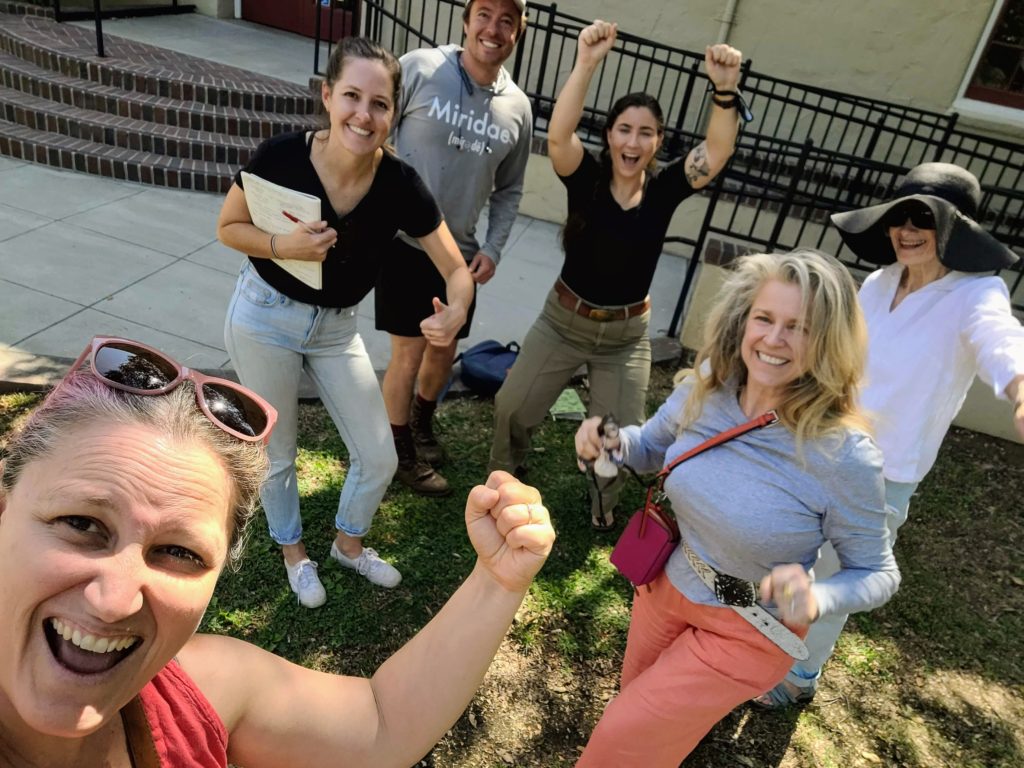Sierra 2 Center for the Arts & Community was awarded $10,000 from the Sacramento County Transient Occupancy Tax (TOT) Grant program to build a native plant demonstration and learning garden at the front (West) entrance of the center on 24th Street. Sierra 2 will partner with Miridae Living Labs, a non-profit that promotes the ecological role of native plants and insects. With the help of local volunteers, the garden will include bug and butterfly-friendly, low maintenance and drought-tolerant native plants, interpretive signage, a seed-disbursing sculpture, and educational opportunities through the Learnery at Sierra 2.
“We are thrilled to partner with Sierra 2 to kick off our first big community garden project! It’s such a wonderful space with excellent community support; we look forward to working with volunteers and helping to spread the love of California native plants and insects!”
said Caroline Larsen-Bircher, Executive Director of Miridae Living Labs.

The community is encouraged to get involved in this project! Volunteers will be needed for community work days in the fall of 2021 to help prepare the land and aid in the installation of drip irrigation, soil amendment, and planting. Classes and workshops on how to plan and incorporate native plants into your yard will be forthcoming. Miridae’s mobile native plant truck will make visits to Sierra 2 Center to sell native plants directly to our community members.
“We are dreaming up all kinds of workshops in the new garden to host through our Learnery program; from mosaic stepping stones for the pathways to still life drawing and photography, building insect hotels and birdhouses… even educational lectures about converting turf to natives or just adding drought tolerant plants to your existing landscape. It’s going to be a great source of knowledge for the community!”
Heather Hogan, Sierra 2 Center staffer who is coordinating the project.
Community members can learn about garden design, plants, and ecological science through garden-based classes at the Learnery. Classes will include arts and crafts like building a birdhouse, bat box, insect hotel, or bird feeder, and landscape photography and portraits in the garden. Self guided tours will include signage and QR codes to web pages about native plant benefits, care, and habitat notes. Future programming may include lectures and classes on how native plant fragrances are used in nature,edible plants and their uses, and identification of backyard bugs.
This is the second TOT grant awarded to Sierra 2 Center, the first was to establish the Learnery classroom within Sierra 2 Center. “We are honored and thrilled to have been selected for another TOT grant!” says Terri Shettle, Executive Director of the center. “This funding helps us expand our services to a wider audience, building on our mission as a regional incubator of the arts, education, culture, and community activities.”
The project has officially begun! Site plans are in the works and workshops and lectures are being detailed and scheduled. To learn more about the project and be notified of classes, workshops, and volunteer opportunities follow Sierra 2 Center on social media or sign up for our newsletter.
—
As the voice of the neighborhood, the Sierra Curtis Neighborhood Association (SCNA) actively participates in preserving the heritage of and enhancing the quality of life in the Curtis Park neighborhood and throughout Sacramento by operating the Sierra 2 Center and the included Senior Activity Center. Learn more at Sierra2.org
The TOT Grant was established in 2017 to provide support to Sacramento County non-profit organizations that carry out community-based programs and/or services in the areas of arts and culture, community development and services, economic or workforce development and health and human services.

Miridae Living Labs aims to promote the crucial ecological role of native arthropods and plants through hands-on mobile science education, “living lab” gardens throughout the region, California native arthropod propagation, and an on-site insectarium. They seek to encourage native arthropod communities in human-occupied ecosystems and regional conservation goals. Learn more at www.miridaelivinglabs.org.
###